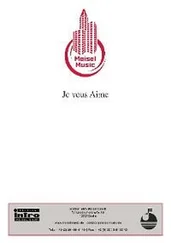THE COMMANDANT: We’ll be calling on your services again, Doctor.
THE DOCTOR: I’m at your disposal, Commandant.
PATROL MEMBER: Get the prisoners out. Let’s go!
SOMEONE IN THE CROWD: My God, Magistral’s daughter in handcuffs! If the father were still alive, he’d get himself killed in front of her.
SOMEONE: And the poor mother with heart trouble! Who will dare go to their house if not Father Angelo?
MME FANFRELUCHE: She’s alone and the house is locked. It’s dangerous to go see her. One always risks getting caught when going inside a suspect’s house.
A YOUNG LADY: Look at the one walking next to Cécile. Look at his eyes and his smile.
ANOTHER YOUNG LADY: Why is he smiling?
MME FANFRELUCHE: But he’s a madman! He’s the son of the trinket vendor, Angélie. You didn’t recognize him? Come on, they’re not serious! They’re arresting madmen!
THE ADJUTANT (returning: Commandant! Commandant, sir! I was unable to find either the prefect or the mayor. I looked for them everywhere. Even Laurette has no idea where they are. Here comes Saindor. He claims he saw them driving to Port-au-Prince at full speed.
SAINDOR: Yes, Lieutenant, they left a while ago and they must be far away by now… Hey! If you guys get arrested, who’s going to pay me? You owe me five piastres, and you ten, and you, Simon, a lot more than that. Hey! I want to get paid, you hear? Find a way! Mademoiselle Cécile! My God! What are you doing with these bums? If your poor father, who I knew so well, saw you in handcuffs! And your mother? She will die of it. The prefect could help you but you’ve been stubborn and pushed him away. He was telling me about it just last night and even got drunk to drown his despair. The prefect and the mayor, hah, they must be far away by now.
THE COMMANDANT: We’ll manage without them. Always have to manage without them whenever there’s work to be done or things get dangerous. This is a police matter. And the police will act.
CÉCILE: My God!
ME: Don’t be afraid. I’ll save you a second time.
THE ADJUTANT (to me): Hey you, what’s in your hand?
PATROL MEMBER: Open your hand. Right, there’s something in his fist. Open your hand, mulatto bastard! A possessed man with a stone in hand, not a good idea. Drop it, you son of a bitch.
ME: NO.
THE COMMANDANT (slapping me): Drop it.
CÉCILE: For pity’s sake, throw it away.
THE COMMANDANT: Let’s go! Keep moving. The rest of you, make way! Clear out.
ME (to Cécile): It was from you.
CÉCILE: What?
ME: The stone.
CÉCILE: What do you mean?
ME: There was a letter wrapped around it.
CÉCILE: What letter?
ME: The one you threw to me from your window. I saw the stone fall and I went to get it. But alas, the letter was gone.
CÉCILE: Oh!
ME: Thank you all the same.
CÉCILE: I still have your poem. I find it very beautiful. I also write poems, I’d like to show them to you.
ME: You’ll read mine and I’ll read yours.
CÉCILE: There’s the prison!
ME: Don’t be afraid. I’m with you.
PATROL MEMBER: Take the girls this way.
ME: If they question you, just say: René is guilty. He made weapons and conspired against the security of the State. He alone is guilty.
CÉCILE: Is that true?
ME: Yes.
CÉCILE: You sound like a sensible man.
ME: Do you think I’m crazy like everyone else does?
CÉCILE: I don’t know. That’s what I’ve heard, but I don’t know anymore. I’ve known you since you were little and I feel as if I’m seeing you for the first time. Your eyes, your smile, they’re not the same.
ME: That’s because you never looked at me before today. In your eyes I was just a beggar. Misfortune has brought us together.
CÉCILE: I hate the prefect, I hate the commandant, I hate them all. They disgust me and I’d like to see them dead.
ME: Don’t forget, Cécile, I’m the guilty one, I’m guilty, you have to say that.
THE COMMANDANT: Stop whispering, you two! Separate them. And bring me the girls.
ME: Farewell, Cécile.
CÉCILE: Farewell, René.
SIMON (to André): Stand up straight, old man. I’m scared too, and your brother’s body is heavy, but I’m holding up well enough.
ANDRÉ: I’ve never been in very good health. Our mother died of consumption. And recently I’ve been spitting up a little blood, too.
SIMON: Bugger me! Look! There’s Germaine! She’ll stop at nothing to get us out. I know her. She’ll sleep with the entire patrol if it will help. A good black woman, yeah. She’s waving to us. It’s good to see her.
PATROL MEMBER (hitting Simon in the back): Shut your hole, white trash, and put down the body.
They dug a hole and dumped Jacques’ body. I was standing between Simon and André. All of us shuddered at the thud of the body in the ditch. Sweat dripping in our eyes, teeth knocking together from faintness and terror. They herded us with their rifle butts into a room where they lined us up faces against the wall. I heard Marcia crying; Cécile’s silence seemed brave and dignified. The commandant asked for coffee, ordered that we be locked up, and left the room followed by the others. We were separated from the women and thrown in a cell.
“Shit!” Simon said. “Our goose is cooked.”
“I’m hungry,” André mumbled.
“How can you be hungry at a time like this?” I asked.
“I’m hungry,” he repeated.
Almost all at once we sank into a deep sleep. At dawn, they woke us with kicks and we found ourselves in a room with the commandant and three men from the patrol sitting at a table. Two rickety green wooden benches leaned against the wall, and there were torture instruments on the table in front of the policemen.
Looking worried and important, the commandant started handling the objects laid out before him with ostentatious reserve.
“I have pointed out the serious charges against the defendants. They have criminal records and left prison barely three months ago. I’ve been kind, indulgent, and today I regret it.”
“What were they guilty of?” one of the three men asked.
“They were inciting a mob, shouting: ‘To arms!’”
“You pardoned them?” the same man exclaimed. “And you dare admit as much!”
“It would appear that these words are from a poem by Massillon Coicou,” the commandant admitted sheepishly.
“Who is this Massillon Coicou?” the man asked. “Is he still in prison?”
“He’s dead,” the commandant answered. “At least, that’s what they’ve told me.”
“Do you hear the cry that resounded: ‘To arms!’” André said suddenly in deep, low voice.
“Silence!” the commandant shouted, “or I’ll break your neck… That verse, we checked it out and it really is from the poet Massillon Coicou. I thought a good beating and six months of detention would be enough punishment.”
“They’re making an ass out of you, Commandant,” one of the three men sniggered. “All one has to do is look in their eyes to see that they’re making an ass of you. That verse by Massillon Coicou, they’re using it to express their own feelings.”
“They’ll live to regret it, I swear,” the commandant hastened to assert.
“I find your zeal to be somewhat tepid,” added the one who had spoken first. “Don’t forget, we were ordered to suspect our own shadow and spare no one… Why don’t you begin the interrogation, Commandant Cravache?”
“You, white man, come forward,” the commandant said.
“Last name, first name, address and occupation,” one of the patrol members recited slowly while dipping a quill in an inkstand.
“Simon de la Pétaudière, French poet, residing in this province, cohabiting with Germaine, merchant on rue Chochotte.”
Читать дальше












